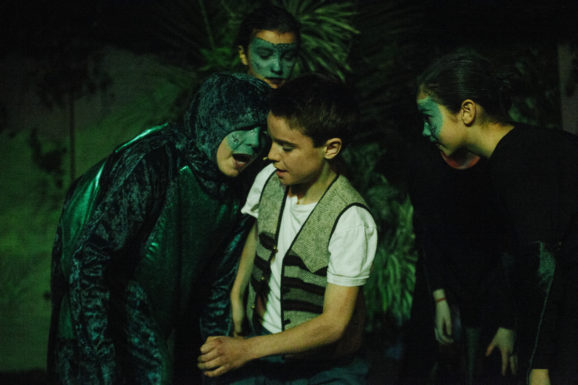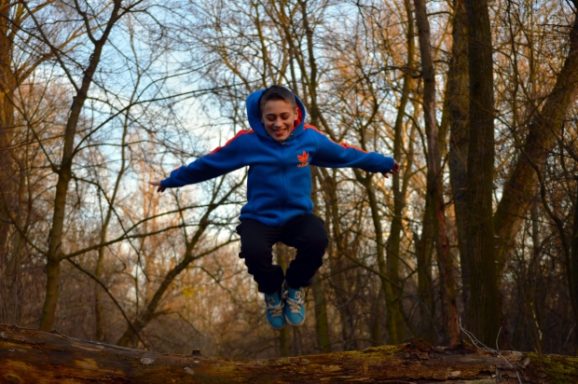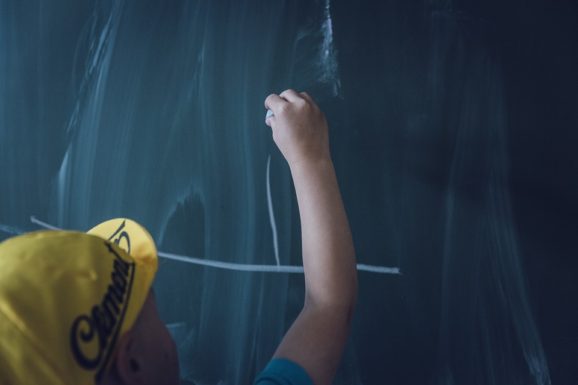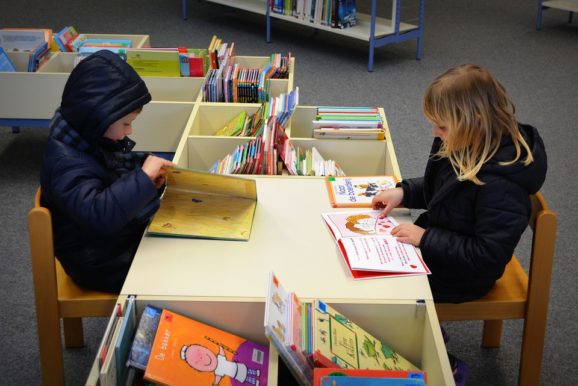I go into classrooms when requested and teach model lessons to the students. Teachers observe the lesson while I use brain-compatible strategies to provide instruction on a concept that the teacher is teaching. During one lesson in an American History class, I was asked to teach some vocabulary words that students will need to comprehend prior to their lesson labor unions. Continue Reading…
Reciprocal teaching and cooperative learning are two of the best ways to have conversations about content. In the original definition of reciprocal teaching, the process is as follows: students make predictions about a part of text to be read. Continue Reading…
When I teach math, if the objective involves problem solving, I never use the problems in the book as my initial examples. Most do not have any real meaning for students. Continue Reading…
When I teach model lessons to K-12 students, I always play classical music before the lesson begins. If I am teaching elementary students, I go to each desk and introduce myself while they are listening to music. If the students are in middle or high school, I am at the door to greet them as they change classes. Continue Reading…
When students move while learning, they put information in procedural or muscle memory. Procedural memory is one of the strongest memory systems in the brain and the reason that one seldom forgets how to drive a car, ride a bicycle, play the piano, type on a keyboard, tie one’s shoes, or brush one’s teeth. Continue Reading…
IVAN CAPP: Interjection, Verb, Adjective, Noun, Conjunction, Adverb, Pronoun, Preposition (Language arts)
HONC if you’re alive! Hydrogen, Oxygen, Nitrogen, Carbon (Science) Continue Reading…
I was teaching the story When Charlie McButton Lost Power to a third-grade class in Mesquite, Texas. The curricular objective was for students to recognize the main idea and supporting details in narrative text. I used a simile as an instructional tool. Continue Reading…
The use of the hands and brain activity are so complicated and interconnected that no one theory explains it. I can’t explain it either! I just know that some students need to have their hands involved before their brains can understand.
“Did you hear about the mathematician who’s afraid of negative numbers? He’ll stop at nothing to avoid them.”
If the math pun above made you laugh or even smile a little, it put your brain in a more positive state. Research tells us that jokes, riddles, celebrations, and other forms of positive interaction not only create a positive learning environment but may also facilitate learning itself. Continue Reading…
20 Instructional Strategies That Engage the Brain: #5 Graphic Organizers, Semantic Maps, & Word Webs
Whether referred to as concept, mind, or semantic maps or as word webs, graphic organizers are one of the best friends of a teacher who desires to facilitate the comprehension of students’ brains, so they are beneficial to all. Continue Reading…
A while back, I was invited to present for the Honolulu Association for Supervision and Curriculum Development. My husband and I went one week earlier than the day on which I was to present so that we could enjoy the scenic beauty and historical significance of our 50th state. I will never forget spending one of those days at Pearl Harbor. Continue Reading…
I worked for 30 years with a major school district in the metropolitan Atlanta area. Even though I have been retired from that system since 2003, I still have a vested interest in the district. I have a granddaughter who goes to school in the district and a son-in-law who teaches physical education there. I was very concerned when I looked at the headlines of a neighborhood newspaper that arrived at my house. Continue Reading…
Thousands of years of history support one major concept: When students are actively engaged in experiences with content, they stand a much better chance of learning and remembering what we want them to know. Continue Reading…
There appears to be a recent movement among some parents that childhood should be a carefree and joyful time and that their children are happier when all rules and responsibilities are taken away. Nothing could be further from the truth. Continue Reading…
Several years ago, my husband Tyrone and I were in New York City when I saw something that made me cringe internally. We were in a hotel lobby in Manhattan when I spotted a double stroller. In the stroller were two adorable children who looked to be about 2 and 4 years old. Built into each section of the double stroller was a DVD player. Continue Reading…
Remember when you were little and you used to play outside for hours on end? Or maybe you’d be inside in a playroom pretending to be a teacher or an astronaut or a princess? Or you would be enjoying watching videos for babies with your parent? When children engage in play, they’re do much more than entertaining themselves. They’re learning and growing; they’re turning into well-adjusted human beings. Continue Reading…
I once heard a brain consultant by the name of Fritz Mengert say that if he had to choose between putting his grandchild in a day care center where teachers rock, hold, and hug children or one where academics are emphasized over all else, the decision would not be a difficult one. Continue Reading…
“The more that you read, the more things you will know. The more you learn, the more places you’ll go.”— Dr. Seuss
A woman once asked Albert Einstein how she could make her son more intelligent. His response? Read him fairy tales. Continue Reading…
Success in school depends on many factors for students, but one of the most important areas that can be overlooked is proper physical health practices that encourage healthy brain development. The brain is a demanding organ. It comprises only 2% of the total body weight, but consumes 8 to 10 times more oxygen and glucose than any other organ in the body. This is why we must do everything we can to protect this vital part of our body. Sadly, some people have had the health of their brains compromised as a consequence of incurring an injury. Luckily, brain injury lawyers try their best to seek justice in a legal sense retrospectively. If our bodies don’t receive the proper nutrition they need, the brain is the first to suffer. Continue Reading…
I’ve heard some teachers say that they have students who don’t want to be challenged. I disagree! One of the reasons that students can’t put down video games is because they look forward to moving to a more challenging level of the game. The difference between video games and classrooms is that when it comes to the game, students have the confidence to believe that they can succeed at a more difficult level. Continue Reading…



















